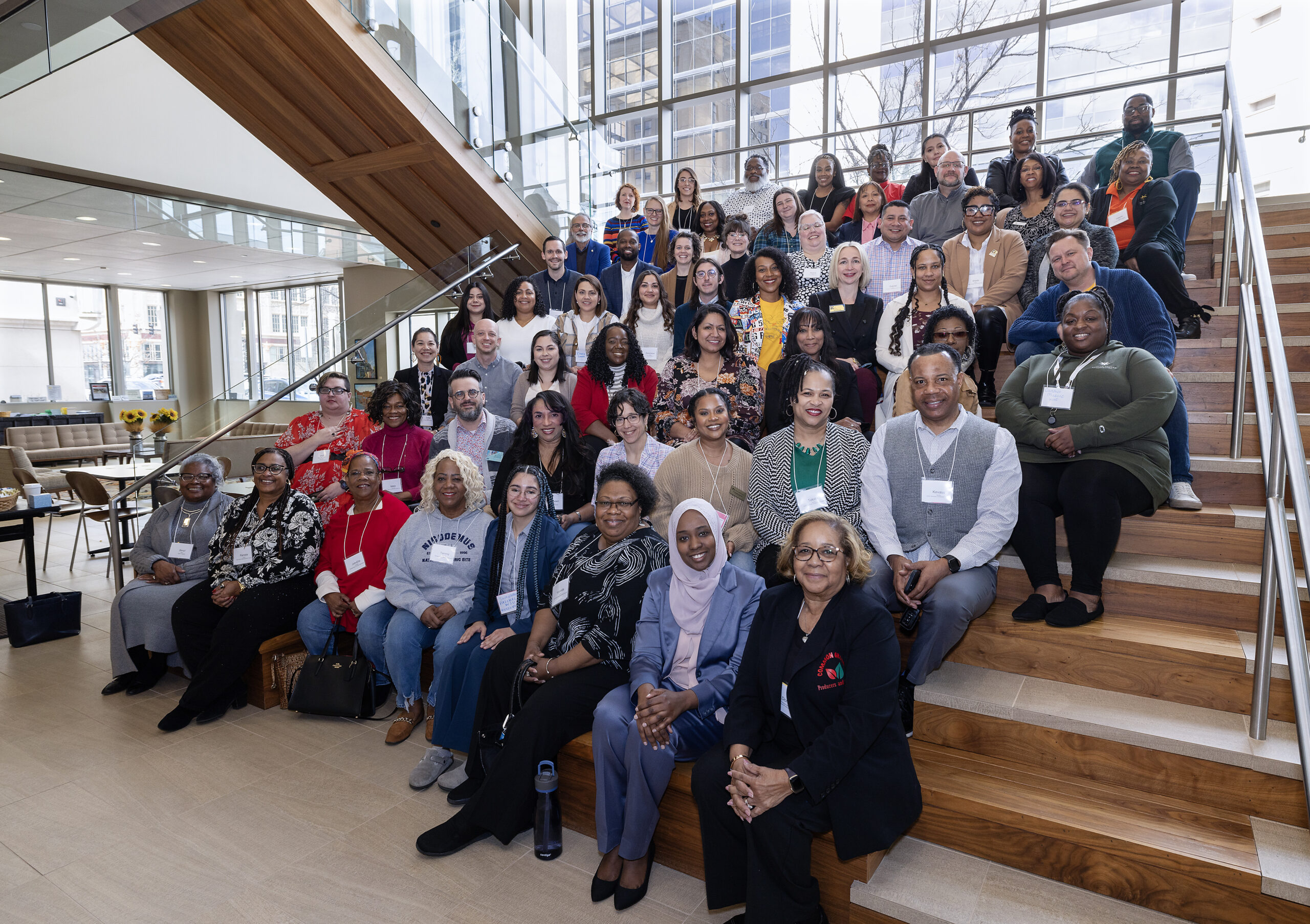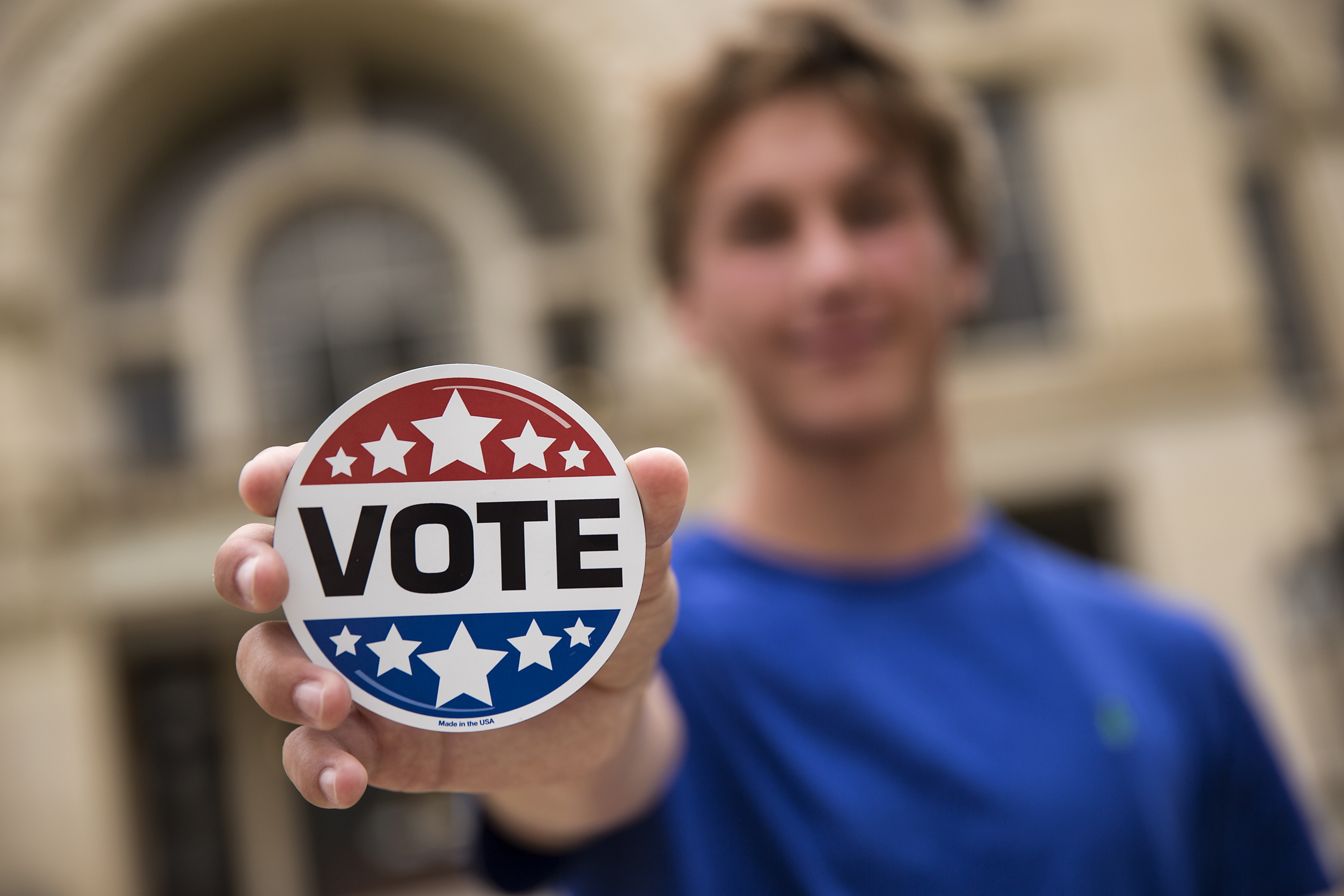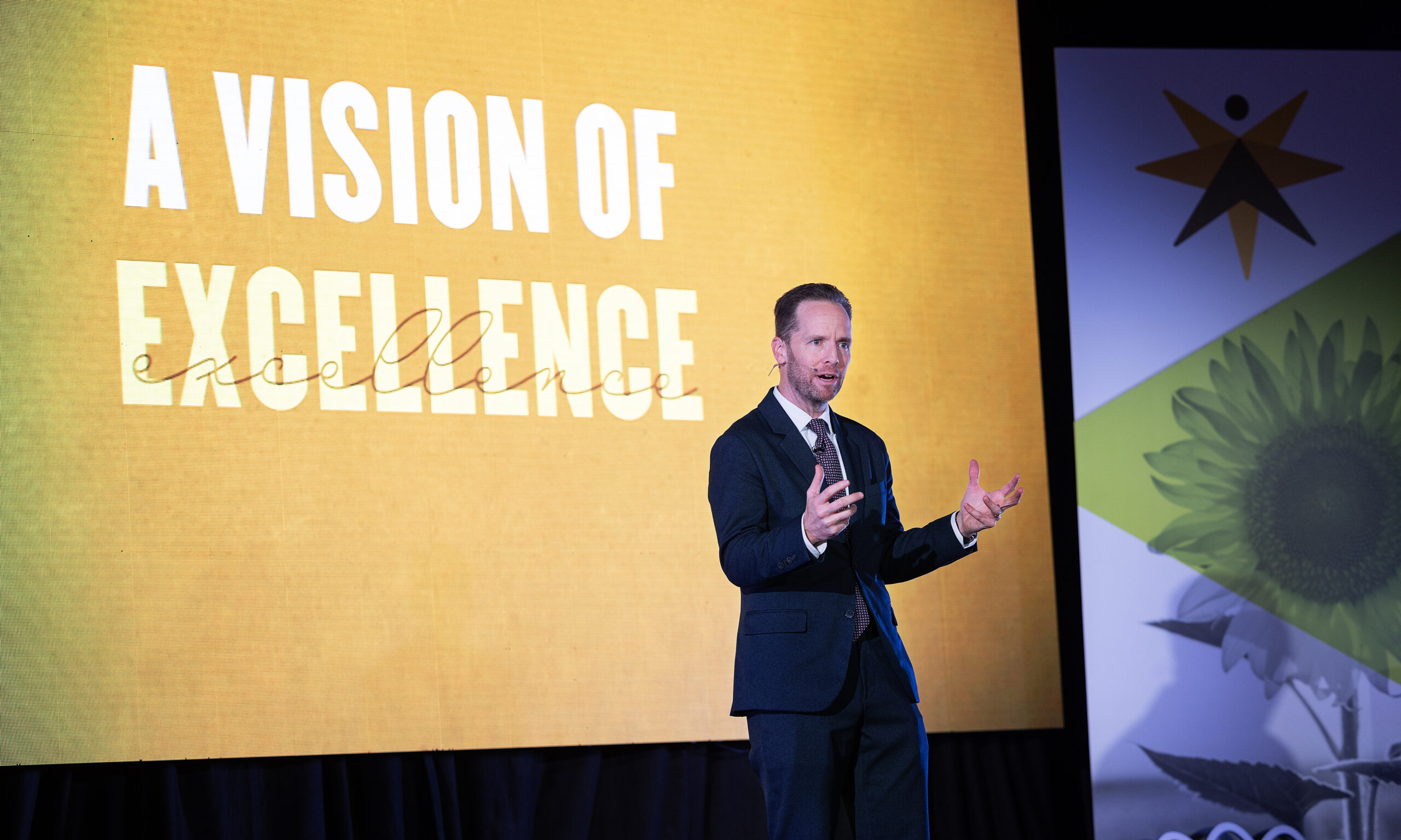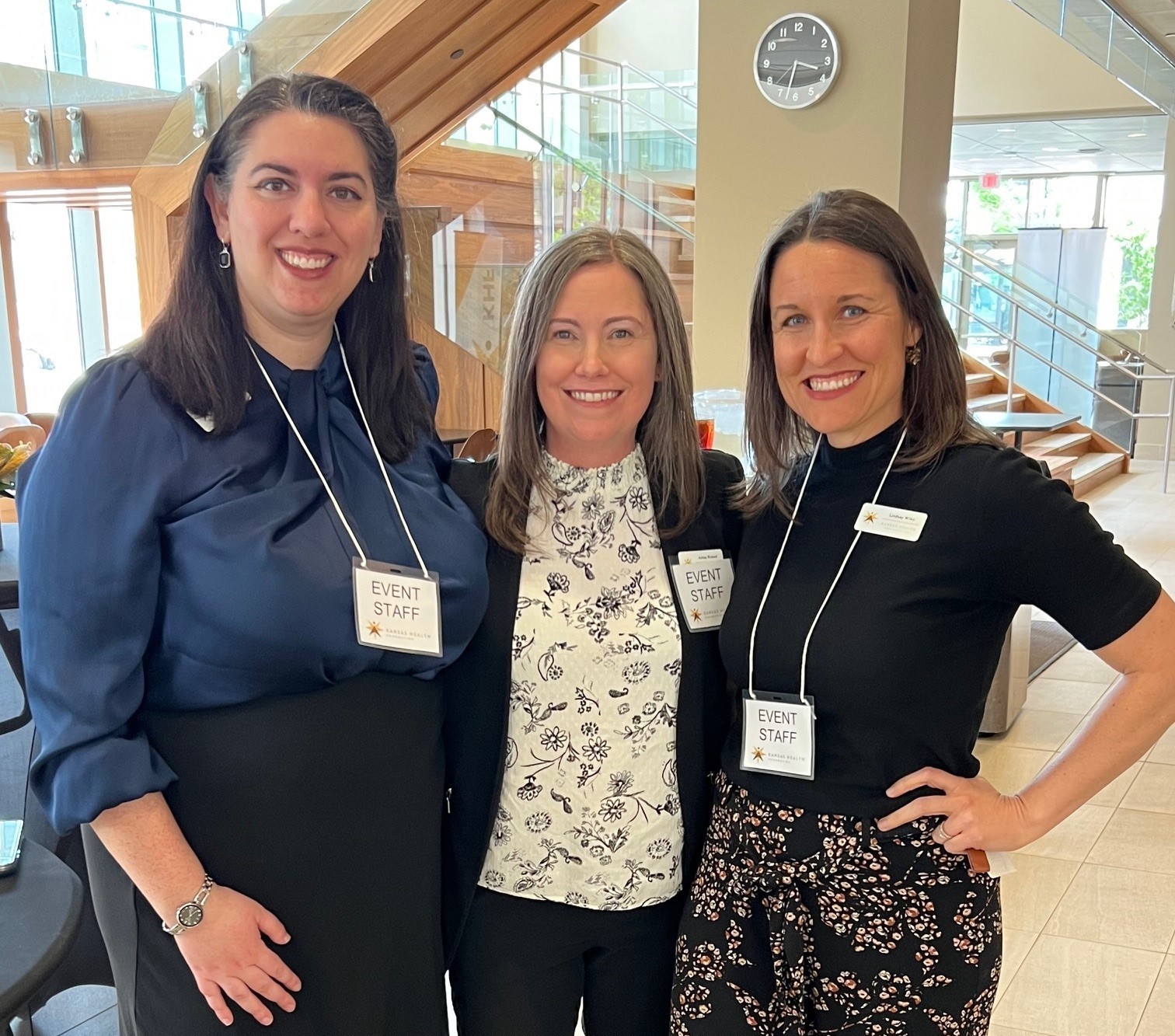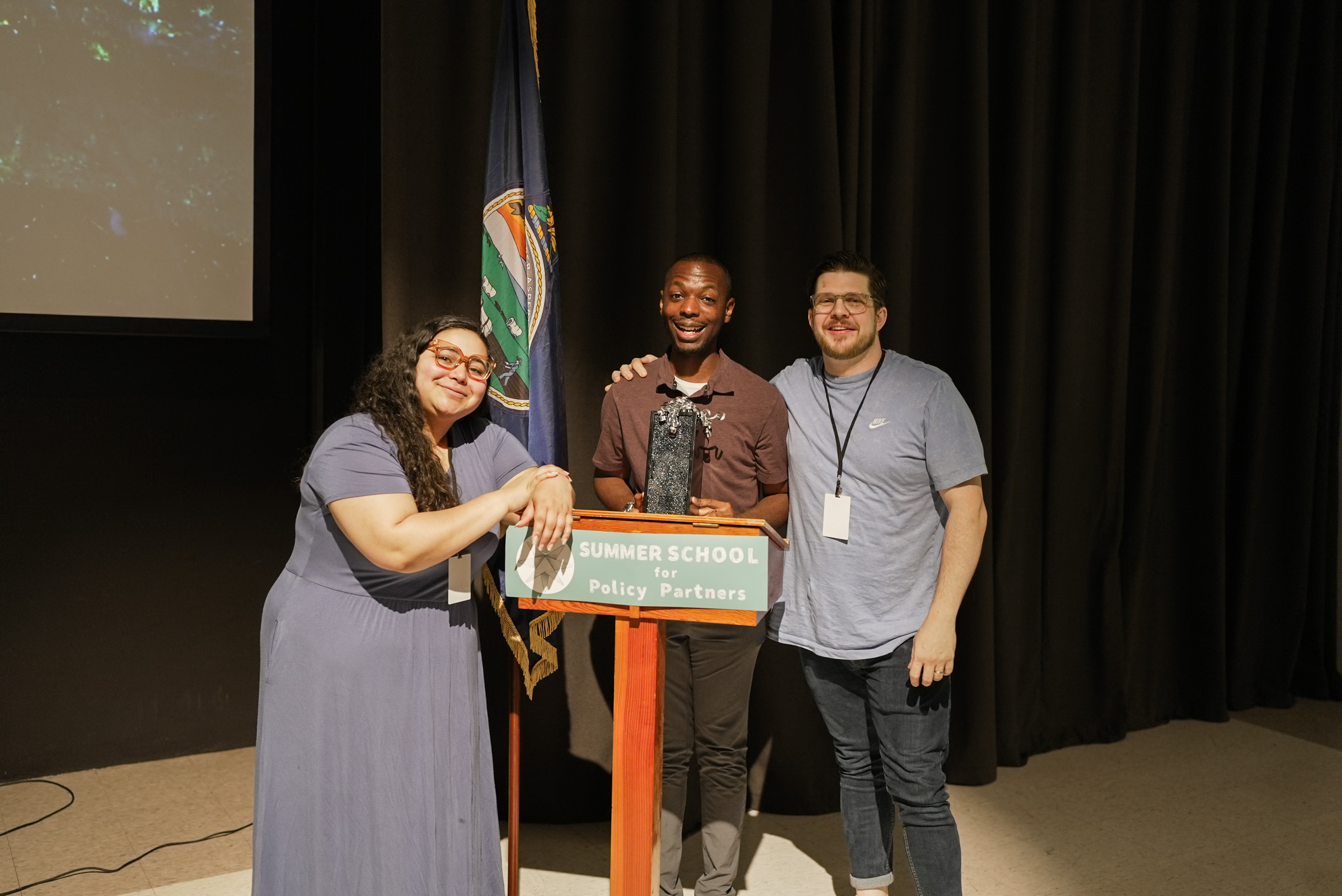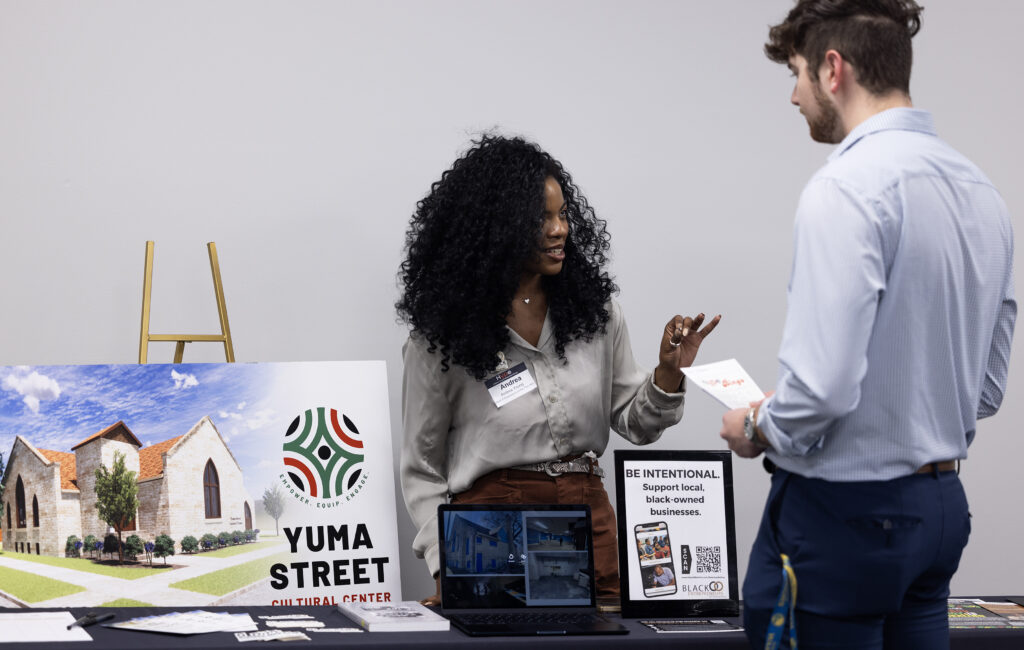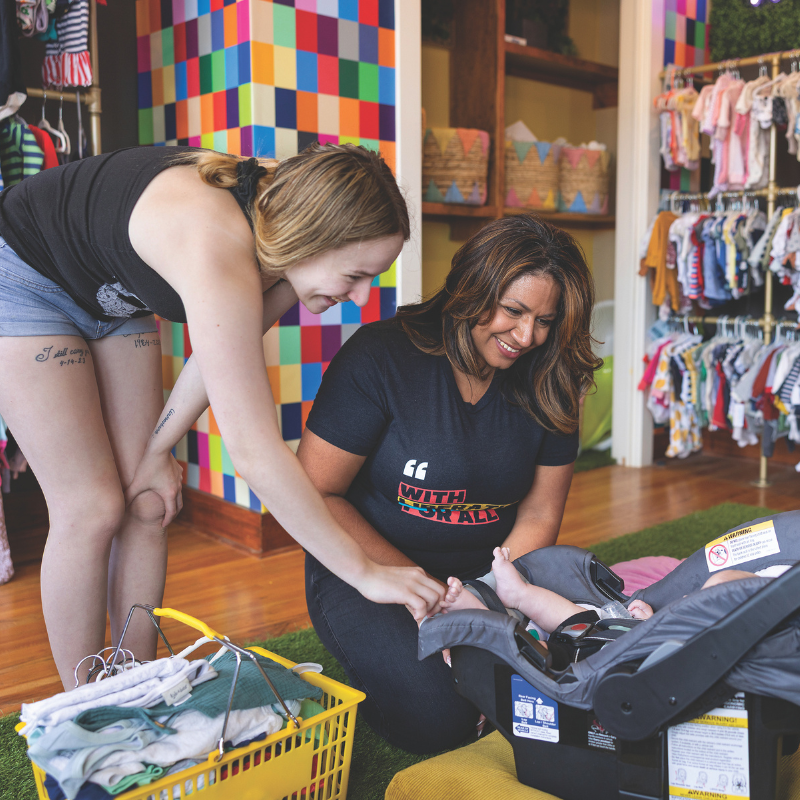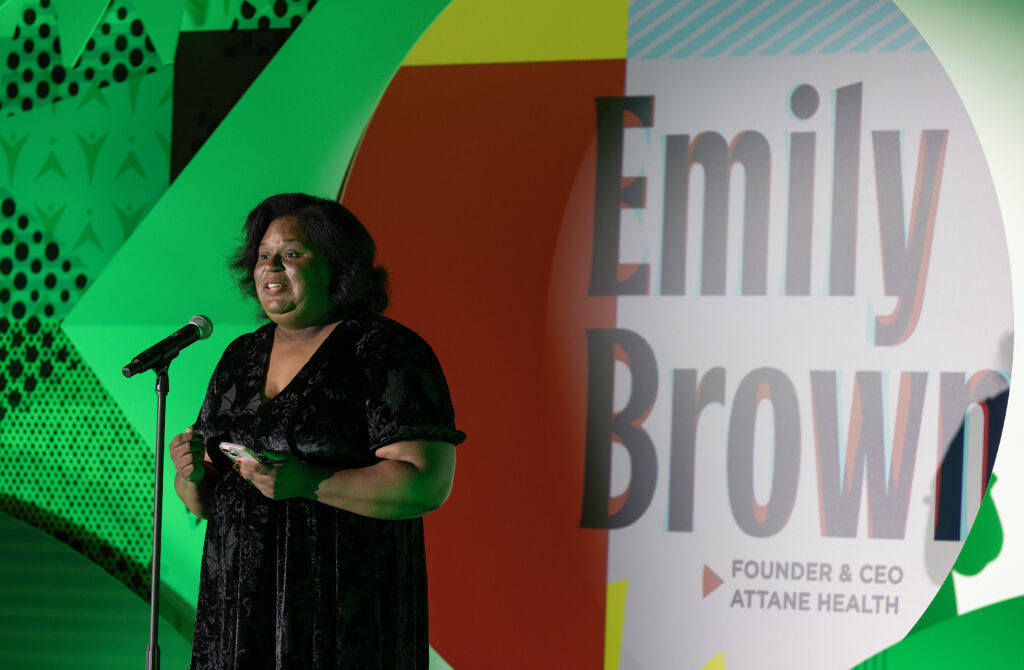This article is part of an ongoing series to chronicle the work of the 30 organizations involved in KHF’s Building Power and Equity Partnership (BPEP) initiative. To learn more about BPEP, click here.
Sheila Ellis-Glasper had been active in multiple business groups around the greater Manhattan, Kansas, area, but eventually, “I grew pretty tired of being the only one in the room like me,” she said. When starting their own business, she and her husband, Jermain Glasper, had faced plenty of the challenges typical for Black entrepreneurs, notably lack of access to capital or business resources and little mentorship. “We bootstrapped our own social media and branding company, navigating hurdles around securing loans and scaling the business without much external support.”
Building Solutions
That experience drove the business partners to found Black Entrepreneurs of the Flint Hills (BEFH) in 2020. Its mission is to help Black and economically-disadvantaged entrepreneurs thrive with resources, mentorship, and access to capital to create generational wealth. BEFH partners with regional and state entities to provide resources for minority-owned businesses, works to create an inclusive community where members can feel they belong, and promotes member- and other minority-owned businesses.
BEFH’s four-point action plan includes:
- seeking access to funding through a mix of grants, loans, and investments supplemented with technical support with the goal of improving quality of life for Black and diverse communities;
- boosting visibility of Black-owned businesses with targeted media campaigns, events, and social media;
- providing training, resources, funding access, and more through partnerships with culturally competent and relevant businesses; and
- driving conversations around equity challenges, including discussing actionable solutions for wealth disparity and health inequities.
The Glaspers chose the Flint Hills area for both personal and strategic reasons. “I was born and raised in Topeka, and graduated from K-State so the Flint Hills is definitely home for me,” Ellis-Glasper said. “We’ve planted roots here as homeowners with children in the local school system.” Strategically, “We saw an opportunity to make a real impact by building an inclusive business ecosystem right here in Kansas. If we can create success stories in a smaller, under-resourced area, the ripple effects will be profound — not just for the entrepreneurs but for the community and region.”
Among BEFH projects are Black Joy is Healing, launched in spring 2024 (addressing Black mental health wellness); CommerceUplift (a 12-week business training class); Each One Teach One (offering one-to-one coaching and mentorship); and Advocacy (advocating for economic justice for businesses that are BIPOC, or Black, Indigenous, and People of Color). Advocacy has included such projects as establishing a $300K-plus micro-loan fund with 20 percent dedicated to minority-owned businesses to counteract biases; pitch competitions providing BIPOC businesses more than $45,000; and events at venues including the University of Kansas’s Innovation Park, where entrepreneurs met with experts offering networking opportunities and $20K worth of technical assistance.
The racial wealth gap is a major issue, Ellis-Glasper noted: “White families have nearly 10 times more net worth than Black families.” A Brookings analysis covering the years 1989 to 2022, for example, found that in 2007, immediately prior to Great Recession, white households averaged about $58K while Black ones were at about $2.5K. In 2009, after the recession hit, white households were down to about $48K and Black ones at $2K.
And the gap is widening at modern unprecedented levels. In early 2023, Black households were at about $6K. White ones had grown to about $115K.
Black women are the fastest-growing segment of all entrepreneurs in the U.S. “We’ve had to create our own opportunities,” Ellis-Glasper said. “When traditional pathways don’t work for us, we innovate. Whether it’s in beauty, wellness, or professional services, Black women are building businesses that address the unique needs of our communities.”
She pointed to the CommerceUplift program, “where Black women-owned businesses like Kavannah Life Counseling, Britt’s Real Estate Services, and J’s Makeup Artistry placed in the top three, respectively, in our pitch competition. They’re not just participating; they’re excelling in sectors where they can bring their whole selves and offer something valuable to their customers.”
Support from KHF
A grant from the Kansas Health Foundation has assisted BEFH in its mission. “We applied for the Kansas Health Foundation grant because of its alignment with our mission of addressing the racial wealth gap, which is intertwined with mental and physical health disparities in Black communities,” Ellis-Glasper said. “Through the grant, we’ve expanded programs like Black Joy is Healing, which connects the importance of financial empowerment with improved health outcomes.
“We hope to continue fostering this connection, providing not only business support but also health and wellness resources that help our community thrive holistically and increase overall quality of life,” she added.
“As we’ve grown, the need for more structured support systems has become clear,” she said. “The KHF grant has allowed us to focus on expanding our mental health program, but we’ve also seen a shift toward needing more consistent mentorship and partnerships. Graduates of our CommerceUplift program have made incredible strides, thanks to weekly support sessions and expert guest speakers.” These experts have included Petreet Spencer, CEO of Ayo Foods, Ward Morgan, a tech entrepreneur and investor, and Abdul and Alicia Yahaya, owners of the Kansas-Based Open Minds Child Development Centers.
Noting BEFH’s growth, Ellis-Glasper said, “Our goals have shifted toward building more scalable models so we can meet the increasing demand.”
Growing Health Programs
Ellis-Glasper noted the “incredible success” of the organization’s health programs.
“There’s a significant link between financial stress and mental health in the Black community,” she said. “The racial wealth gap creates a persistent strain, affecting not only economic mobility but also mental well-being.”
She cited statistics that underscore this reality.
- Eight out of 10 Black-owned businesses fail within the first 18 months.
- Black-owned firms are twice as likely to be denied loans compared to their white counterparts, face higher bank fees, and are three to five times more likely to be labeled high credit risks.
- Most Black-owned businesses have small payrolls, with 66 percent employing fewer than 10 people in 2020. Ninety-four percent of Black-owned businesses employ fewer than 20 people and only 2 percent of businesses with employees are Black owned.
- Overall, Black entrepreneurs typically receive less than 2 percent of all venture capital dollars each year while companies led by Black women receive less than 1 percent.
- Black-owned businesses were four times more likely to have revenue under $100,000 than white-owned businesses.
In addition, Ellis-Glasper said, “Many Black entrepreneurs feel a heightened responsibility to succeed,” notwithstanding the extra challenges they face because their access to capital and resources is demonstratively more limited than those for whites. “This constant pressure can lead to burnout, anxiety, and depression. By addressing these financial barriers through entrepreneurship, we’re also working to alleviate some of the mental health challenges that come with economic instability.”
Events focusing on the strong connections among entrepreneurship, mental health, and wellness have drawn more than 200 attendees — thus far.
Black Joy is Healing subsidizes therapy sessions for members. “This initiative has been well-received, and we’re working on creating an affiliate model to bring this program to other cities,” she said. The program’s impact “has rippled into our business training efforts, helping entrepreneurs address the mental strain that often accompanies financial instability.”
The Black Joy is Healing program included hosting “Embracing Black Joy & Healing Our Community: Highlights from our Black Joy is Healing Brunch and Mental Health Panel.” Featured therapists included Tychelle S. Jones-Ransom, LSCSW, individuals from 365 Days 365 Chances Counseling Services, LLC, LLC, LLC; Tyrone Townsend, MA, LPC, NCC, Townsend Counseling Services; Jurdene Coleman, LCMF; Chaz Mailey, Psy.D., Manhattan Mental Health; and Arthalia Weekes, Kavannah Life Counseling, LSCSW.
The program is accessible to all BEFH members, who can choose from a network of trusted mental health providers on a password-protected online portal. BEFH covers the cost of the first five therapy sessions.
“This ensures that financial barriers do not stand in the way of receiving the support needed,” said Ellis-Glasper. “We believe that mental health is a key part of entrepreneurial success, especially for Black and underrepresented business owners who often bear the compounded stress of systemic racial and economic challenges. By removing the financial burden and offering culturally competent care, we aim to empower our members to improve their mental well-being while also achieving their business goals.”
Providers are also BEFH members who themselves are Black and underrepresented entrepreneurs, “so this program also brings awareness and clients to their practices.”
Ellis-Glasper said the program also includes community-focused events such as panel discussions and brunches, “where we explore the intersection of the racial wealth gap and mental health — and how entrepreneurship can help bridge both.
“Our partnership with the Kansas Health Foundation enables us to address these disparities head-on, offering not only mental health support but also resources that promote economic growth through entrepreneurship.”
Among the therapists contributing to BEFH’s mental health wellness efforts is board member Dr. Chaz D. Mailey, Psy.D., a licensed psychologist and co-owner of the private practice Manhattan Mental Health Services, LLC. He has also served on the Diversity Equity and Inclusion and Belonging Board with the Manhattan Chamber of Commerce and the USD 383 school system.
“In each of those roles,” said Dr. Mailey, “my job is to advocate for” representation and connection within Manhattan for diverse entities. “I joined the BEFH board because of my desire to be involved in an organization that has a mission and vision that aligns with helping underserved businesses grow,” he said. “Small business is the lifeblood of a thriving community, and I want to see a thriving Black population in Manhattan that provides people economic freedom and the ability to be their own boss.”
Mailey noted early reluctance to use BEFH’s therapy resources, citing the stigma that often continues to exist among many Black entrepreneurs. “However, in recent weeks, I and other BEFH clinicians I’ve spoken with have seen a significant uptick in members accessing and utilizing the program,” he said. “Members see the benefit of having someone who might be able to relate to — or at the very least hear and validate — their experiences.”
He said he’s also seen increased focus by BEFH and its members on the importance of recognizing the relationship between mental health and the real-world experiences that affect emotional well-being. “The Black Joy is Healing program seems only to grow each year,” he said. “In the future, I would love to see more diverse health care providers in our community” to improve the long-term health outcomes of traditionally underserved communities.
Of the KHF and BEFH partnership, Mailey said he appreciates that it has brought members “a much-needed service. It would be amazing if long-term treatment could be provided. So many members have long and complicated histories, and it can be hard to cover so much ground with the current limitations of the program.”
Variety of Businesses Served
In an online testimony, Eric Depradine, founder of Zydeco Meadery, one of many Black-owned businesses that BEFH has helped, said that at wine festivals, “attendees feel awkward about trying samples from an African American. It can be demoralizing when we spend time, effort, and money producing a good product and have to deal with people scared of a free sample of mead made by someone of a different skin color.” He noted that once folks try the product, they are “pleasantly surprised at the flavors we can create using Kansas and New England ingredients. Folks say our business is bringing a little positive color to rural Kansas.” Depradine called a past BEFH workshop he attended “a game-changer,” adding, “Sheila and her family do a great job getting folks to connect and getting non-POC businesses to connect with us.”
Tychelle S. Jones-Ransom founded 365 Days 365 Chances, which received a BEFH Circle of Community Black Business Grant, to provide counseling services for BIPOC clients via virtual meetings offered during nontraditional hours, including weekends and evenings. Being a mental health provider who recognizes the disparities in services for BIPOC people “gives me a sense of satisfaction as I contribute to minimizing this gap,” she testified online. “BEFH provided hope and encouragement and a reminder to keep the faith. As a Black woman, it is not easy to exist, let alone exist as an entrepreneur.” BEFH has provided “a safe space to network, discuss challenges, and develop solutions.”
Doula Mentoria Green cited the high rate of maternal deaths among Black women. “We are not receiving the care that we need when bringing life into this world,” she said. “I see being a doula as an opportunity to provide quality care where it is needed in my community.” A first-generation entrepreneur, Green said she “needed to see a room full of Black people” who owned businesses for her to believe in her own undertaking. “I’m not sure I would be where I am without them,” she said.
Growing Forward
Ellis-Glasper noted that BEFH “is committed to creating long-term change.” She pointed to the “next phase of growth” for BEFH: the Yuma Cultural Center, “a transformative initiative designed to celebrate African American excellence while fostering entrepreneurship and cultural engagement in the Flint Hills.” The center will be located in the historic Shepard’s Chapel, “the last standing building in Manhattan’s Yuma Street Historical District,” and will offer a hub for business development and cultural enrichment. Programs will include a rotating restaurant incubator for food entrepreneurs, business, youth development, job training and financial literacy training workshops, and the Melanin Market for entrepreneurs of color.
“The Yuma Cultural Center aims to honor the rich history of the Black community while driving economic growth and tourism,” Ellis-Glasper said. “By combining entrepreneurial innovation with a deep respect for cultural heritage, the center will become a beacon of opportunity, community pride, and economic empowerment in the region.”
###



